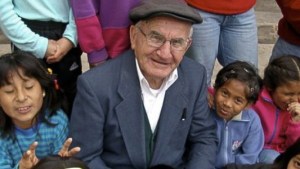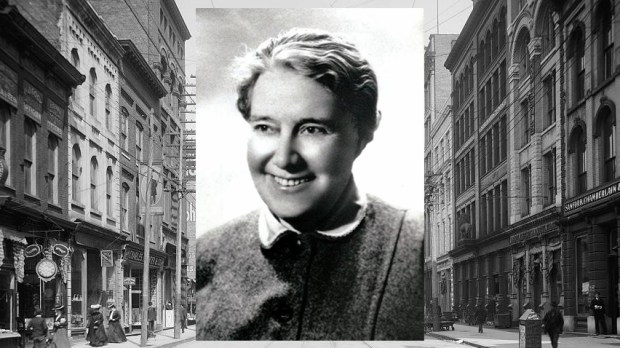Born in Glendale, Ohio, in 1895, Celestina Bottego had a tender heart that was open to all people, especially the poor. She was raised in an Italian immigrant home and spent most of her early life living in Butte, Montana. When Celestina was 15, her family moved back to Italy to take care of her father’s elderly parents.

Read more:
Meet Father Joe, a Wisconsin priest on the road to canonization
Bottego continued her studies at the University of Pisa and sought to become an English teacher. After graduating, Bottego taught in numerous schools in Parma, Italy, for the next 20 years. She also deepened her spiritual life and became a Benedictine Oblate.
It was during this time that Bottego became active in the Catholic Action movement and cared for the poor in her local community. Everyone in the neighborhood knew Bottego and sought her out as a counselor during their many hardships.
According to some testimonies, “Whoever came close to her, felt as being in front of ‘a happy person that radiated confidence, serenity, and whose heart invited you to love Jesus and your brothers.’ Receptiveness to friendship, combined with her warm welcome while preserving solitude and silence, characterized her. The secret of her comforting and reconciling presence was the intimate union with the Lord, her adherence to His will, and her unlimited trust in the Providence.”
Prior to World War II Bottego was worried for the many young people who spent much of their time on the street, and made available a large room on the ground floor of a home for them to stay. Bottego and a local priest would alternate teaching catechism to these troubled youth.
A new chapter
Bottego began teaching English at the Institute of the Xaverian Missionaries in 1935 and unexpectedly was drawn into a new vocation at nearly 50 years of age. A priest there, Father Giacomo Spagnolo, asked her to consider founding a woman’s branch of the Xaverian Missionaries. At first she refused, claiming she was “really good at spoiling the works of God.”
However, after much prayer and discernment, Bottego accepted the call and with Father Spagnolo founded the Xaverian Missionaries of Mary. On July 2, 1950, the first four members took their religious vows, including Bottego, who was recognized as their superior. Soon after, September 27, 1951, the general chapter of the Xaverian Fathers officially recognized the institution as its women’s branch.
For the rest of her life Bottego focused her attention to this new missionary vocation and saw firsthand the founding of numerous houses all over the world. Besides Italy, the Xaverian Missionaries of Mary are now present in Africa (Burundi, Democratic Republic of Congo, Cameroon, Chad), the Americas (United States, Mexico, Brazil) and Asia (Japan and Thailand).
According to one sister Bottego was, “Always open arms … She was a mother. She was writing all the time and asking how the community was. Always with a smile. (Her) eyes – they were brilliant. So much light was coming from them … I remember, Mother was always serene, with a smile, and deep faith in God’s will.”
Bottego died on August 20, 1980 and was deeply mourned by all who knew her.
The cause for her canonization was opened on November 24, 1994, and the initial investigation into her life was submitted to Rome in 2001.
Pope Francis recognized her life of virtue and declared her “venerable” on October 31, 2013. The next step in her cause requires at least one miracle to be verified in order for her to be declared “blessed.”

